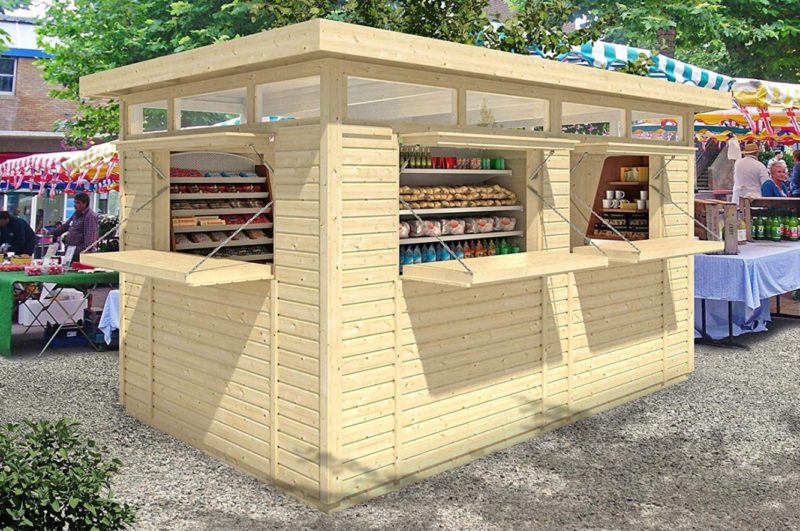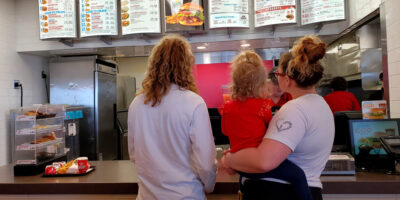Amazon’s “Tiny Kiosk” Democratizes Wealth Creation

The tiny-house movement caught on like wildfire, prompting an industry boom that benefited a series of builders and small-home manufacturing companies — as well as those living in those homes. So as tiny-home villages began to pop up around the country, Amazon saw an opportunity and partnered up with manufacturers to offer consumers easy-to-assemble tiny homes that can even be put together in a few hours.
Now, everybody’s favorite online retailer is at it again, giving entrepreneurs a chance to kickstart their business without spending much on infrastructure.
With the DIY prefab “retail kiosk,” Amazon hopes to help anybody starting a store, a bar, or another type of business by keeping their costs low.
Some have even used the kiosk as a chicken coop.
Whatever the end, Amazon’s retail kiosk is becoming more popular by the minute. And why wouldn’t it? A tiny retail space that has three service windows is inspired by Scandinavian design, and can be built in “mere hours” is nothing short of amazing — especially if it costs just under $4,000.
According to Allwood, the manufacturer, once the kiosk is assembled its 94-square-feet interior space is ready to use. And while entrepreneurs aren’t required to finish the kiosk inside, Allwood recommends staining and sealing the outside wood to protect from weather damage — nothing that a quick paint job won’t do.
The Market Responds to Necessity
These easy-to-assemble retail kiosks aren’t just a great example of the market’s ingenuity, they are also proof that the market provides an answer to customers’ needs, even if these needs are the product of artificial barriers imposed by the government.
Much like the tiny-home movement, which came as a response to the housing crisis and homelessness, the tiny kiosk follows in the footsteps of the food truck revolution, giving entrepreneurs yet another option to start small and with few people.
Currently, leasing a store in most urban areas in the United States costs, on average, $3,000 per month. Additionally, businesses are also on the hook for other types of fixed expenses, such as insurance and taxes. Eliminating the need to spend thousands on a lease per month helps the entrepreneur launch their own business without much capital. That means that more people are able to enter the market, providing their services and products without having to rely on loans. In other words, businesses become more independent faster if they can rely on a structure that they can build themselves.
While it’s obvious that just having the structure isn’t enough, as entrepreneurs will probably have to pay a fee to set up their retail kiosk somewhere, the idea of assembling your own shop is worth it to many because it cuts a lot of long-term expenses. To entrepreneurs in the lower income brackets, this means more independence and freedom.
By making this an option to those hoping to enter the market, Amazon is quite literally democratizing wealth creation. After all, it is thanks to Amazon that countless small shops will get a chance to open up their doors in the coming years.
Much like the food truck industry, the affordability of the tiny kiosk helps to lower the cost of doing business, even if the government isn’t helping. In other words, it is the market, once again, that is working around the clock to help people thrive; all the while, the government does everything in its power to see them fail.












